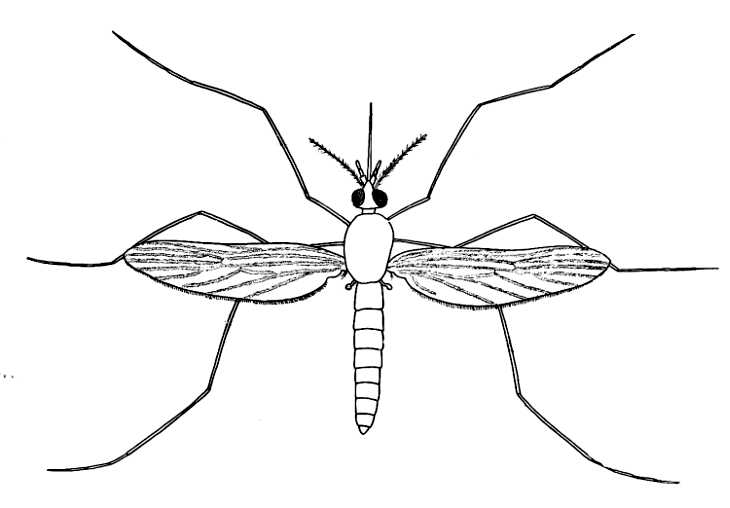Wednesday, January 19, 2011
Why are Humans Creating and Releasing Genetically Modified Mosquitoes?
Operation Drop Kick was a 1956 U.S. entomological warfare field testing program that modified and deployed the yellow fever mosquito. The goal of the project was to use the mosquito to carry and release a biological warfare agent. The concept was simply to drop a large collection of diseased mosquitoes over a populated area. Operation Drop Kick included a 1956 test in Savannah, Georgia, where uninfected mosquitoes were released in a residential neighborhood, and another 1956 test in Avon Park, Florida, where 600,000 diseased mosquitoes were released on the city.
Between the years 1956-1957, several U.S. Army biological warfare experiments were conducted in the city of Avon Park. In the experiments, Army biological weapon researchers released millions of mosquitoes on the town in order to see if the insects would spread yellow fever and dengue fever. The residents of Avon Park were not notified of the deadly experiments. Hundreds of residents contracted a wide array of illnesses, including fevers, respiratory problems, stillbirths, encephalitis and typhoid. Army researchers pretended to be public health workers, so that they could photograph and perform medical tests on the victims. Several people died as a result of the program.
The experiments in Avon Park were concentrated in low-income neighborhoods, in areas that were predominantly black with newly constructed housing projects. In 1978, a Pentagon document titled, Biological Warfare: Secret Testing & Volunteers revealed that similar experiments were conducted in Key West, Florida. Many people have raised the question of why the U.S. government was playing around with the Dengue fever virus. Dengue fever is an infectious disease that causes a number of symptoms, including severe headaches, a petechial rash and muscle and joint pains. In a small proportion the disease progresses to life-threatening complications. Since the middle of the 1950s, the rates of Dengue fever infection have increased dramatically, with approximately 50-100 million people being infected yearly. The disease has become a global epidemic in more than 110 countries with 2.5 billion people living in areas where it is prevalent.
In 2009, the British biotechnology giant Oxitec announced that they had developed a genetically-modified (GM) mosquito (OX513A) that, apart from a specific chemical antibiotic, is unable to successfully repopulate. After intense media scrutiny, the company gave a statement which indicated that the GM mosquitoes may help fight the spread of dengue fever by reducing or eliminating the wild mosquito population. In 2009, Oxitec released millions of the OX513A test mosquitoes over the Cayman Islands. Many people have questioned the decision to fight the spread of Dengue fever by using more infected mosquitoes. Nobody knows for sure what will happen when the new GM mosquitoes interact with animals and human life, or how the mosquitoes altered genes will disrupt the environment.
Subscribe to:
Post Comments (Atom)

for your safety
ReplyDeletewho wouldnt want them buzzing around everywhere? .
ReplyDeleteI love mosquito bites
ReplyDeletethats taking it too far.
ReplyDeleteinteresting post :D
ReplyDeletedamn, thats fucked up
ReplyDeleteWell that's just fricken wonderful!
ReplyDeleteInteresting point of view
ReplyDeleteSounds like the typical Americans in all their wisdom, lol.
ReplyDeleteMind = blown can't believe this kind of stuff is happening
ReplyDeleteCrazy!
ReplyDeleteBecause if I get enough of them on my chest, I can look sexier, just have to deal with the itch. snaztoday.blogspot.com
ReplyDeleteduude... O_O
ReplyDeleteyuck...mosquitos are hated. However, this continent is a breeze compared to south america....shit they have flying there is a whole different story :(
ReplyDeleteThis kinda reminds me of the book plumb island.
ReplyDeletemedical company's need money..
ReplyDeletegreat blog followed! check out my blog at www.samboism.blogspot.com
ReplyDeleteMilitary and Morality. It's funny what a couple swapped letters can do for polarization.
ReplyDeleteSuckers gotta suck.
ReplyDeletedoesn't surprise me at all.
ReplyDeleteit's all part of the nwo methinks.
ReplyDelete